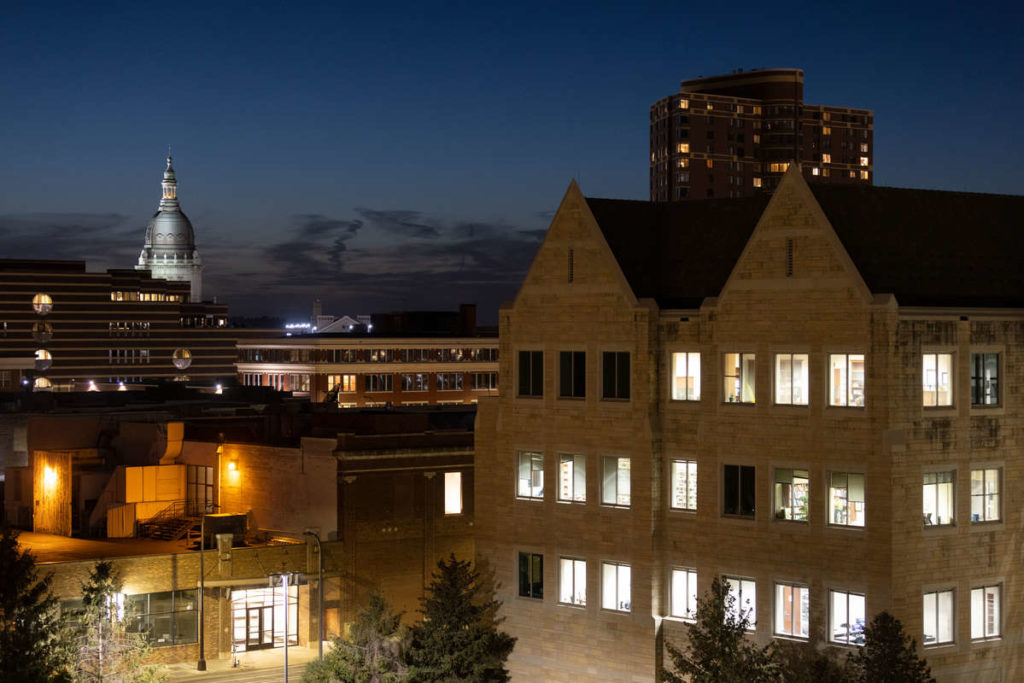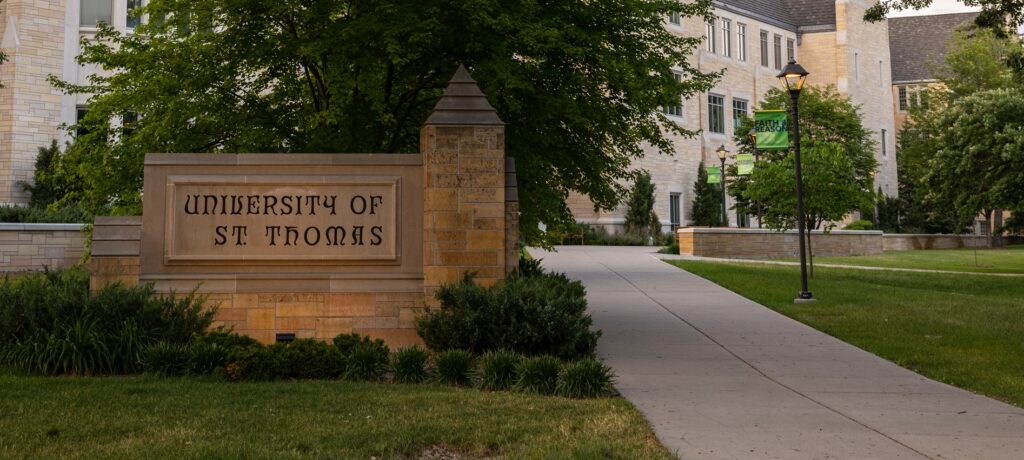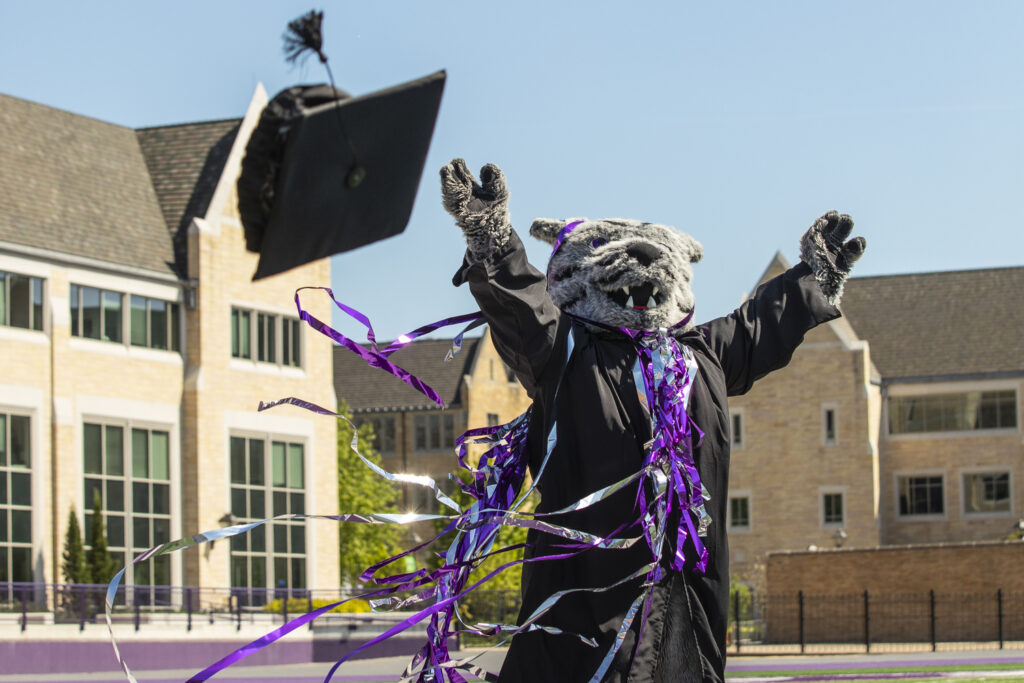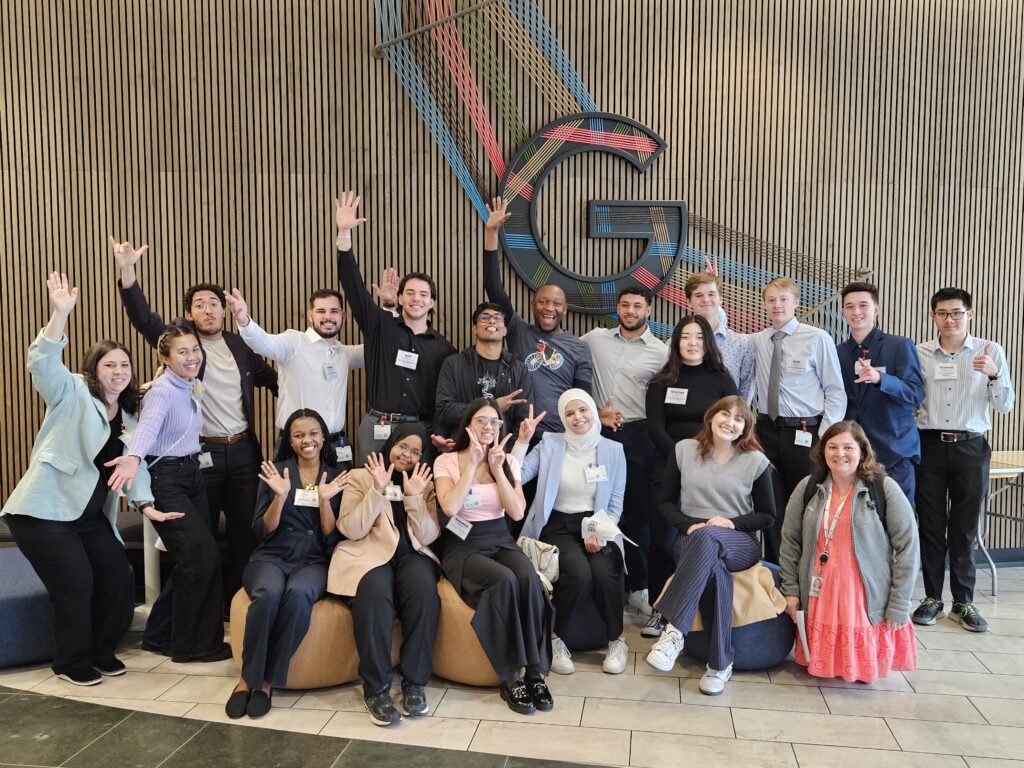Legal scholars from half a dozen U.S. law schools will gather for a symposium on “Islamic Law and Constitutional Liberty” Monday, April 12, at the University of St. Thomas School of Law in downtown Minneapolis.
The spring St. Thomas Law Journal Symposium will be held in the School of Law’s Schulze Grand Atrium. Practicing lawyers, legal scholars and the public are welcome to register for the event. For more information and registration information contact Bethany Moeller at (651) 962-4830 or RSVP here.
Panelists will discuss topics related to two broad themes:
- First, what challenges and opportunities face democracies in Muslim-majority nations as they seek to integrate Islamic law with the rights typically accorded in constitutional democracies?
- Second, what tensions exist between adherence to Islamic law and the norms of liberal democracies in nations with growing Muslim minorities?
Within this framework, participants will discuss Islam and religious liberties; privatization of law issues, such as those being considered in Canada; and notions of patriotism, assimilation and pluralism as they pertain to Islam. They also will explore the unique features of Islamic law and its integration into modern legal systems.
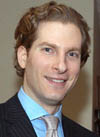
Noah Feldman
Keynote speaker will be Noah Feldman, adjunct senior fellow at the Council on Foreign Relations and professor at Harvard Law School. Feldman’s books include After Jihad, What we Owe Iraq, and The Fall and Rise of the Islamic State. He also has published articles on the future of democracy in the Middle East.
Other presenters will be:
- John Bowen, the Dunbar-Van Cleve Professor in Arts and Sciences, Sociocultural Anthropology at Washington University. Bowen’s most recent book is Can Islam Be French? Pluralism and Pragmatism in a Secularist State. His current research focuses on comparative social studies of Islam across the world.
- Imam Feisal Abdul Rauf, chair and founder of the Cordoba Initiative. Feisal has appeared regularly at the Council on Foreign Relations and the World Economic Forum. He has been interviewed and quoted by the BBC, CNN, New York Times, Washington Post, Frontline, and Foreign Policy. His books include: Islam: A Search for Meaning; Islam: A Sacred Law (What every Muslim Should Know About the Shariah); and What's Right With Islam: A New Vision for Muslims and the West.
- L. Ali Khan, professor of law at the Washburn University School of Law. Khan has authored three academic books published in the “Developments in International Law” series. He has written law review articles on the U.S. Constitution, comparative constitutional law, legal education, human rights, international disputes and terrorism.
- Haider ala Hamoudi, assistant professor of law at University of Pittsburgh Law School. Hamoudi currently is spending time in Baghdad advising the Constitutional Review Committee of the Iraqi legislature, responsible for developing amendments to the Iraq Constitution deemed necessary for Iraqi national reconciliation, on behalf of the U.S. Embassy in Baghdad. Hamoudi’s scholarship focuses on Middle Eastern and Islamic Law, particularly on matters of commerce.
- Faisal Kutty, assistant professor of law at Valparaiso University School of Law. He is a Ph.D. candidate at Osgoode Hall Law School. His dissertation examines the impact of anti-terrorism legislation and policies on the rule of law. He also is completing his diploma in Islamic banking from the International Institute of Islamic Banking and Insurance in London.
- Russell Powell, assistant professor of law at Seattle University School of Law. Powell previously taught at the Univeristy of Jordan and his areas of expertise are business law (especially corporate law), jurisprudence (with particular interests in Catholic social thought and Islamic legal theory), and comparative law.

